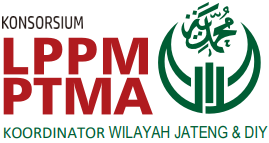Pharmacists' Efforts to Limit Interaction with Consumers During the Implementing Emergency Community Activity Restrictions
DOI:
https://doi.org/10.53017/ujmr.119Keywords:
Covid-19, Communication, Information, Therapeutic FunctionsAbstract
The spread of Corona Virus Disease 2019 (Covid-19) peaked on July 15, 2021 due to an uncontrollable spike since the previous month. The government responded by implementing Emergency Community Activity Restrictions (ECAR). However, pharmacies can still operate normally at that time. This article presents the efforts of pharmacists in limiting interactions with pharmacy consumers during ECAR. This study involved two pharmacies in the Temanggung Regency, Central Java. Observation activities took place from June to July 2021. Researchers collected 100 samples of interactions that took place between pharmacists and patients, by recording all conversations that occurred. Researchers classify the nodes of conversation (utterances) in two communication functions; therapeutic and social functions. The research data are presented in descriptive form. In emergency ECAR situations, pharmacy staff have tried to limit interaction with pharmacy consumers, by shortening the face-to-face duration. Within the limited duration of interaction, pharmacists are more dominant in conveying information exchange, and prioritizing information on the therapeutic aspect. The results of this study confirm to all parties that efforts to prevent the spread of the Covid-19 virus also include effectiveness in health services. Although there are restrictions on interactions in pharmaceutical services, health service providers still prioritize the fulfillment of the quality of information exchange to patients.
Downloads
Downloads
Published
Issue
Section
License
Copyright (c) 2021 Sania Husna Annavisa, Setiyo Budi Santoso

This work is licensed under a Creative Commons Attribution 4.0 International License.





